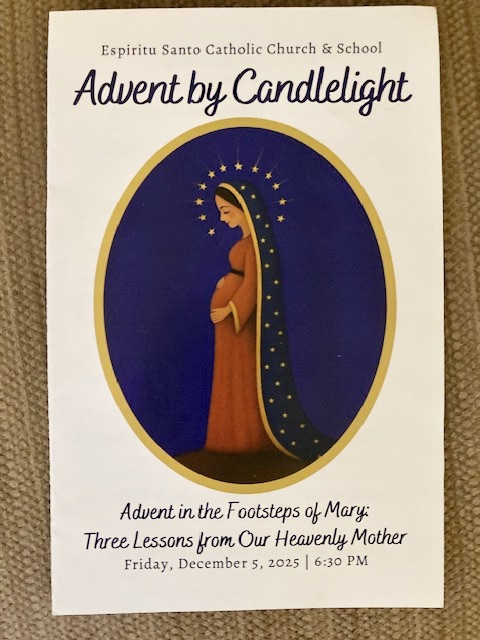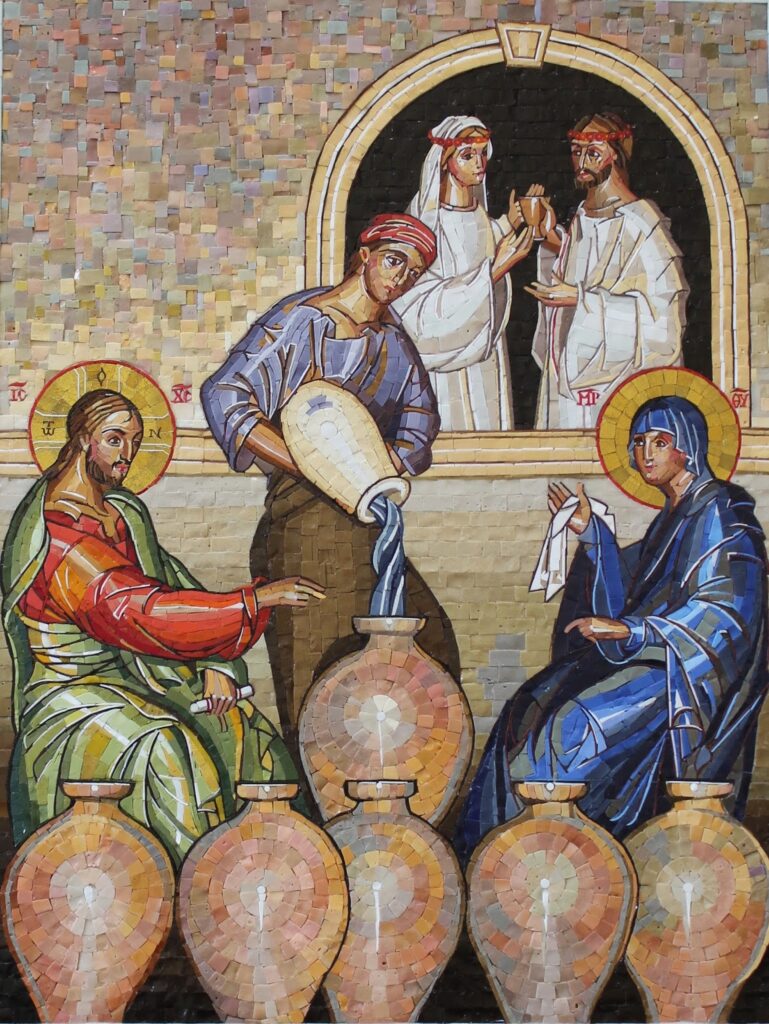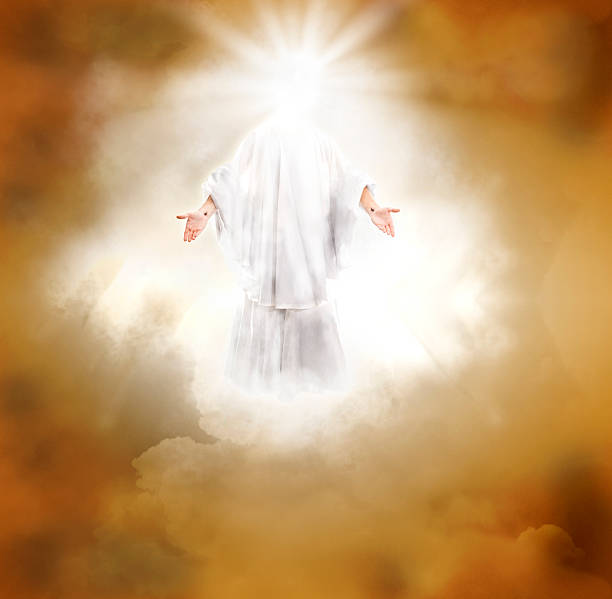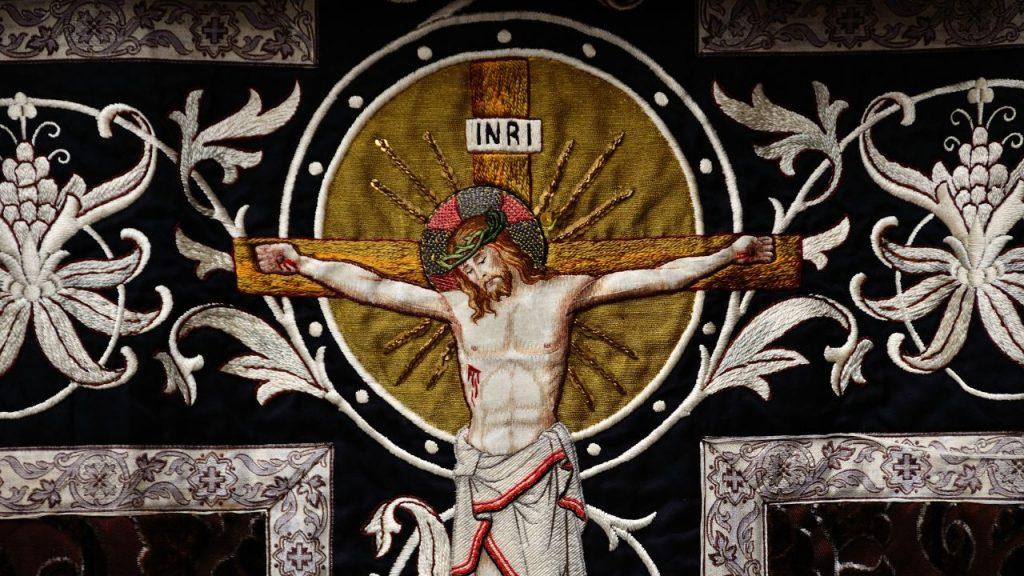Advent 2025: Getting Closer


Advent by Candlelight is a beautiful ritual that I was privileged to be part of Friday night. It took place at Espiritu Santo parish in Safety Harbor, Florida. After each giant candle on an Advent wreath was lighted, a high school student read a guided meditation. Advent hymns were interspersed, sung by a small choir and us. Women sang a duet for “I Wonder As I Wander.” To conclude, I spoke on living Advent in the footsteps of Mary. Afterwards, we all moved to a large hall for appetizers, desserts, and fellowship.
The first year of the peaceful, inspiring event fifty people attended. Surprisingly, now in its ninth year, about two hundred participated. People paid $20.00 to attend and proceeds were donated to the Notre Dame Retirement Fund. Thank you, parishioners! Also, the supply of my Heart to Mary books was sold out, and so I had to take orders.
This Advent
Advent already? This year has whizzed by. Now we are waiting for Jesus, to celebrate his coming at Christmas and his Second Coming, which is getting closer and closer!

With all the bad news from around the globe, we might feel like praying, “How long, O God? How long? How long? (Psalm 13) . . . before we enjoy your kingdom of peace and justice?” However, Scripture says that a thousand years are as a single day to the eternal God. (Psalm 90)
Pierre Teilhard de Chardin, S.J. encouraged us to “trust in the slow work of God.” During Advent we are “eagerly waiting for our Lord Jesus Christ to be revealed” (1 Cor. 1:7). But apparently we need to “wait for it patiently”(Romans 8:25). Of course, this is hard for us Americans who like instant everything. Nevertheless, poet R.J. Thomas noted, “The meaning is in the waiting.”
Observing Advent
During Advent we prepare, pray extra, and give presents to the poor. But Trappist Thomas Merton pointed out, “Life is a perpetual Advent.” Consequently, we ought to keep up those practices all year round.
Mary is one of the three people we focus on in Advent. (The other two are Isaiah and John the Baptist.) The Blessed Virgin had to wait nine months before the Son of God was born. As the first and best disciple as well as our mother, Mary is an excellent model for us, a shining example of what it means to be a Christian, particularly during Advent.
Five Marian Lessons from the Cana Wedding

First
Mary teaches us to notice needs and act. She is not too busy socializing or dancing to be oblivious of an impending disaster: the wine is running out. (Someone said that was because Jesus brought along the twelve apostles!) This will embarrass the newlyweds and their parents and make the wedding feast a bad memory for them. So Mary acts to fill the need.
Second
Mary knows to go to Jesus when there is a problem. In this wedding emergency, Mary immediately turns to her son and simply states, “They have no wine.” She doesn’t beg him to do something. Jesus has not worked a miracle yet, but Mary knows she can trust him to do something. And he does, although is wasn’t his “hour.” His Jewish mother, whom he loves, has power!
Third
Mary perseveres. Although Jesus appears to rebuff his mother’s tacit request, Mary is undaunted. She goes to the stewards and tells them to do whatever Jesus says. This, known as “Mary’s commandment,” are her words to us too.
Fourth
Mary influences others. Her faith in her son is so strong that it is contagious. The stewards have little reason to think that Jesus would provide wine. What does a carpenter from Nazareth know about making wine? Moreover, why pour water in the water jars when it’s wine that is needed? Yet, because of Mary’s faith, they do as Jesus says.
Fifth
Mary is humble about her rescue. After Jesus provided the abundant and excellent wine, Mary could have bragged to others that it was because of her that Jesus had saved the day. But she didn’t.
An Advent Prayer

During Advent we pray the second last verse of the Bible: “Come, Lord Jesus!” (Revelation 22:20) Here is an extended version:
Come, Lord Jesus!
Come, Prince of Peace, and extinguish the hatred and violence that mar the beauty of your world.
Come, Light of the World, and shine in places where people do not know you.
Come, Good Shepherd, and seek out sinners, especially loved ones who cause us concern.
Come, King of the Universe, and extend your kingdom of justice over our land.
Come, Son of Mary, and further the rights of women.
Come, Refugee in Egypt, and bring about a just solution to immigration problems.
Come, Son of God, and fill the hearts of people who are sad this season with hope and joy.
Come, Savior, and inflame in me a vibrant love for you that ignites love for you in others.
• This Advent which of Mary’s actions at Cana can you imitate?
• What special Advent practices are you doing this year? What are you praying?
An Advent Song
In my taught high school religion classes, I taught my students the Advent round, “Long Is Our Winter.” Here is a recording of this haunting song. The lyrics are
Long is our winter, dark is our night.
O come set us free, O saving Light.
Come set us free, O saving Light.
O come dwell among us, O saving Light.
Good Shepherd

The Good Shepherd is the theme of this week’s blog. Jesus as shepherd is quite a contrast to King Jesus as presented last week. Granted, most of us are probably only familiar with shepherds because of pictures of Jesus as the Good Shepherd. But it still is a powerful and consoling term for Jesus.
King David

This title has roots in the Old Testament David, a great ancestor of Jesus. He was a shepherd boy who became king. His most known and most loved psalm is Psalm 23:
“The Lord is my shepherd; I shall not want. He makes me lie down in green pastures. He leads me beside still waters. He restores my soul. He leads me in paths of righteousness for his name’s sake. Even though I walk through the valley of the shadow of death, I will fear no evil, for you are with me; your rod and your staff, they comfort me. You prepare a table before me in the presence of my enemies; you anoint my head with oil; my cup overflows.”

David was able to slay the giant Goliath with his slingshot because he was proficient at defending his father’s sheep. He persuaded King Saul to let him face Goliath by saying, “Whenever a lion or bear came, and took a lamb from the flock, I went after it and struck it down, rescuing the lamb from its mouth, and if it turned against me, I would catch it by the jaw, strike it down and kill it.”
Jesus as Shepherd
Later Jesus came to rescue his Father’s sheep from the devil who goes prowling about. He called himself the Good Shepherd: “I am the good shepherd. The good shepherd lays down his life for the sheep…I know my own and my own know me” (John 10:11, 14).
Jesus also told a parable about a good shepherd who leaves 99 sheep to fetch one that has gone astray. That is quite an exaggeration. Nevertheless, it makes the point that God loves sinners.
Recently in a movie I saw a sheep that was on its back and couldn’t get up. I read about this situation in the book A Shepherd Looks at Psalm 23 by W. Philip Keller. A shepherd is always on the look for a cast down sheep, which is easy prey. Under the hot sun, the sheep can die from suffocation or exposure. Gases buildup in its stomach, squeezing its lungs and heart. It can die in a few hours. The shepherd will roll the sheep over, stand it up, and gently massage its legs. If it can’t walk, the shepherd will carry it back to the flock.

“All of us are like that straying sheep. Scripture says, “All we like sheep have gone astray; we have all turned to our own way, and the Lord has laid on him the iniquity of us all.” (Isaiah 53:6).
The Pope is the shepherd of the Church. Jesus told Saint Peter, the first of 267 Popes, “Feed my sheep.” We have been blessed with recent Popes who have a pastoral heart. Let’s pray for Pope Leo who bears the burden of the worldwide Church.
My Shepherd
I spent one Christmas Day in the convent making a calendar for my father as a gift. That evening, my sister called and said, “Dad’s in the hospital. He had a heart attack and has already been anointed. You better come.”
At the hospital my dad lay unconscious and attached to a machine making a rhythmic hissing sound.
When I was back home and in bed, sleep was elusive. I was petrified. What if Dad dies? What will Mom do? Suddenly, out of nowhere, “The Lord is my shepherd” slipped into my mind. I said these five words over and over and they became like a soothing lullaby. They made me sense God’s loving presence, and, comforted, I fell asleep.
The next morning, I returned to the hospital. In Dad’s room were two men. One was the doctor, and the other was a male nurse who had worked overtime through Christmas night caring for my father. The nurse’s name was Bob Shepherd! Dad recovered and lived several more years.

This experience taught me the value of praying mantras: short, repeated prayers. Consequently, I wrote a collection of them which was published as Prayer Moments for Every Day of the Year, available from Paulist Press or me. The cover has my photo of sunrise over the Sea of Galilee, which I took during a visit to the Holy Land, where there are still shepherds.
When has God been a good shepherd to you?
Who is your favorite Pope?
What outstanding pastor (priest) has played a role in your life?
The Sisters here are practicing for their annual Christmas performance of the Messiah, a fundraiser for the hungry. This is one of my favorite songs from it:
Kingdom of God with Christ the King

The Feast of Christ the King is the conclusion of each Church year. To me it is special because it’s my feast day, a day when we Sister celebrate our patron, usually a saint. When I entered the Sisters of Notre Dame, the Chardon Province was named Christ the King, and this feast was celebrated in a grand way. A high point was singing the hymn “Christus Vincit” (Christ Conquers). At the end of this blog is a video of young people in Indonesia singing it with the harmony the way we used to do.
Named for Christ
Originally the feast of Christ the King was in October, when the autumn trees were aflame with color, and our property was a sight to behold. Then it was moved to November. And back then my name was Kirene, chosen for Christ the King. The chi-rho symbol for Christ is formed from the first Greek letters of Christ. At first, I asked for Kiro but was told that was too masculine, so I added a feminine ending.
When we reverted to our baptismal names, one of my sisters was disappointed because she said “Kirene” was such a conversation piece! I chose to be Sister Kathleen because my other sister named her firstborn daughter Kathleen Ann for me.
Christ the King

The “crime” of Jesus that led to his crucifixion was being king of the Jews. As customary, Romans wrote this crime on his cross in three languages. Consequently, some crucifixes have INRI at the top, which stands for the Latin Iesus Nazarenus Rex Iudaeorum, which means Jesus of Nazareth, King of the Jews. Jesus did not come to overthrow the Romans and become King of Israel. His role was something greater. Ironically, the statement on the cross is true. Pilate refused to change it to “He said he was king of the Jews.” (INRI too was one of my name choices. In fact, I had a list of forty possible names related to Christ as king.)
Kingdom of God
Jesus spoke about his kingdom. His ministry was proclaiming the Kingdom of God. He told Pilate it was not of this world. He said it was “at hand” and told people it was in their midst. In the Book of Revelation Jesus appears riding a white horse and with the words “King of kings and Lord of lords” on his robe and thigh. So the Kingdom of God is here but not yet, which is very mysterious.

Gerald Darring (St. Louis University, Center for Liturgy) gave this explanation of the Kingdom of God:
“The Kingdom of God is a space. It exists in every home where parents and children love each other. It exists in every region and country that cares for its weak and vulnerable. It exists in every parish that reaches out to the needy.
“The Kingdom of God is a time. It happens whenever someone feeds a hungry person, or shelters a homeless person, or shows care to a neglected person. It happens whenever we overturn an unjust law, or correct an injustice, or avert a war. It happens whenever people join in the struggle to overcome poverty, to erase ignorance, to pass on the Faith.
“The Kingdom of God is in the past (in the life and work of Jesus of Nazareth);
it is in the present (in the work of the Church and in the efforts of many others to create a world of goodness and justice); it is in the future (reaching its completion in the age to come).
“The Kingdom of God is a condition. Its symptoms are love, justice, and peace.”
Gospel Reflections
The above passage was on an email from a reflection Fr. Patrick van der Horst in London provided. Every day he links a piece of artwork with the Gospel. I recommend this program. You can subscribe to it at https://christian.art/
We pray a pray that begins Jesus, King and Center of all hearts … What does it mean to say that Jesus is king of your heart?
The title “king” for Jesus might not appeal to you as much as another one. What do you prefer to call him?
A Stirring Rendition of My Favorite Song
Color, A Beautiful Gift

When I was a child, I saw the Wizard of Oz movie at our neighborhood theater. What a joy it was to have the black and white screen suddenly turn into technicolor! But color is not confined to fantasy worlds. Our real world is in full color. Thank goodness! Can you picture a sunrise or sunset in black and white??

From our earliest days we learned about the primary colors and how mixing them magically became secondary colors, and then tertiary colors. But every basic color has many hues. It took the movie studios almost a week to decide on the shade of yellow used for the yellow brick road! You may have faced a similar dilemma as you chose paint for your living room.
It was Isaac Newton at the age of 23 who discovered that light is composed of colors. He used a prism to break up a single ray of light. He went on to name the seven basic colors and invent the color wheel.

How We See Color
We perceive color because of cells in our eyes called cones. The three types of cones pick up the light reflected by objects ad transmits it to our brains. It’s said that normal human beings can see about ten million colors. Some people, called tetrachromats, have an extra cone in their eye that enables them to see up to 100 million colors! Birds and butterflies see even more colors.
Colorful Treats

Autumn up here in the north provides a feast for our eyes. The amazing trees with leaves changing to red, orange, and gold and the every-changing skies a mix of white, blue, slate, and dark grey are sights to behold. Once when I needed to stay overnight in Vermont, the hotels and inns were packed full of “leaf-peepers.” So I spent the night in a family’s home.

God delights in color. Consider the flowers that come in various colors, birds’ feathers and butterflies’ wings.


One of my favorite poems: “Pied Beauty” by Gerard Manley Hopkins
Glory be to God for dappled things—
For skies of couple-colour as a brinded cow;
For rose-moles all in stipple upon trout that swim;
Fresh-firecoal chestnut-falls; finches’ wings;
Landscape plotted and pieced—fold, fallow, and plough;
And all trades, their gear and tackle and trim.
All things counter, original, spare, strange;
Whatever is fickle, freckled (who knows how?)
With swift, slow; sweet, sour; adazzle, dim;
He fathers-forth whose beauty is past change:
Praise Him.
Click this to see a collection of poems about color on the Internet.
Getting Acquainted with Color
Recall the joy of using colors to produce artwork. As we aged, crayola boxes went from 8 to 12 to 24 to 64 to 120 different colors. Then too there were paints: Prang watercolor paint, tempera paint, and oil paint. We learned the colors of the shimmering rainbow by Roy G. Biv.
Now adult coloring books are all the rage. Click here to see a site that offers Thanksgiving coloring pages.
Five Little Crayons by Unknown
Five little crayons colored a scene.
Yellow, blue, orange, red and green.
“Look,” said Yellow, “My sun is bright!”
Blue said, “Great! My river’s just right”
Orange said, “Flowers! I’ll draw something new”
Red said, “Great, I’ll add some too!”
“Sigh,” said Green, “I’m tired of trees,
And grass and bushes and tiny leaves.
I think I’ll draw a big green cloud!”
“A big green cloud should be allowed!”
The crayons all smiled and didn’t think twice.
A big green cloud sounded rather nice!
We Sisters wore black and white habits, then progressed to gray. Now we are free to wear clothes from the whole array of colors. What joy! Someone from the Color Me Beautiful company gave us a presentation about what colors we would look best in, depending on if we were a winter, autumn, summer, or spring person. My friend was disheartened to learn that she looked best in black and white!
Differences in Colors
Most people have a favorite color. I think God’s is blue because that is the color of the whole sky and all the bodies of water that reflect it. That is also my favorite color.
Colors reflect moods. The warm colors are happy. The cool colors are peaceful. We associate certain colors with holidays: red and green for Christmas, orange for Halloween, purple and yellow for Easter, red and pink for Valentine’s Day.
We associate colors with emotions: Saw red. Green with envy. In a black mood. He was yellow. She woke up blue. The combination red and yellow induces hunger!
Colors have different meanings.
Another Poem about Color
Color
Christina Rossetti
What is pink? a rose is pink
By a fountain’s brink.
What is red? a poppy’s red
In its barley bed.
What is blue? the sky is blue
Where the clouds float thro’.
What is white? a swan is white
Sailing in the light.
What is yellow? pears are yellow,
Rich and ripe and mellow.
What is green? the grass is green,
With small flowers between.
What is violet? clouds are violet
In the summer twilight.
What is orange? Why, an orange,
Just an orange!
What is your favorite color?
What is the most beautiful, colorful scene you have witnessed?
Who is your favorite painter? What is your favorite painting?
For an interesting video about choosing colors:
Eyes, Ours and God’s

Our Two Eyes
Eyes are precious gifts that we seldom pay attention to unless something gets into them. Recently I visited an optometrist and now have a new pair of glasses. This has focused (!) my mind on eyes as a topic for this blog.
Our eyes are one of God’s intricate and amazing creations.
Your eyes let you be aware of the world around you. They perceive depth and color. Light is a requirement for them to work, as you know if you’ve ever stumbled over something in the dark.
Structure of Eyes
A little research revealed these facts:
The cornea protects your eye and bends light entering it.
The sclera is the white part, which is covered by the thin conjunctiva.
The aqueous humor is fluid that helps keep the eye’s shape.
The iris, which is colored, has muscles that control the pupil.
The black pupil controls how much light enters your eye.
The lens focuses the light and directs it to the back of your eye.
The vitreous is the fluid between the lens and retina.
The retina is the layer of cells at the back of your eyes that converts light into electrical signals. It contains rods that help you see in dim light and cones, which help you see colors. The macula in the retina lets you see details.
The optic nerve carries signals to points of your brain.
Other Eye-Opening Facts
Now if that isn’t complex enough, features of our face contribute to the eye’s protection. Eyelids wipe the eye and spread tears to prevent dehydration. Eyelashes protect the eye from fine particles. In addition, eyebrows keep sweat and debris from falling into the eye socket.
Human eyes only take in a field of 200 degrees wide, although teachers presumably have eyes in the back of their heads.
Eyes of animals and insects vary enormously depending on their environment and lifestyle. Many have better vision than we have. Eagles can spot a rabbit running three miles away. Flies have 360 degree vision. Some animals see more colors than we do and can even see ultraviolet.
God’s Eyes
As a pure Spirit, God has no physical eyes, however, he “sees” all. In other words, God is omniscient, all-knowing. “His eyes are upon the ways of mortals, and he sees all their steps” (Job 34:21). “The eyes of the Lord are in every place, keeping watch on the evil and good” (Proverbs 15:3).
Art represents this by the Eye of God, a large eye within a triangle, symbol of the Trinity. This depiction is also called the Eye of Providence.
A little boy was afraid to be in church because of a large stained-glass window showing this Eye of God. But then his teacher explained, “That doesn’t mean that God is watching you to catch you doing something wrong. It means that God loves you so much he can’t take his eyes off you!”
The eye of God appears in the seal of the United States and on the back of one-dollar bills.


The stunning nebula closest to the earth is Eye of God. You can see why.

The Ojo de Dios has roots in indigenous peoples. Today it’s a craft for children.

The Eyes of Jesus
When God became man, he was able to see with human eyes. Jesus first saw the face of Mary, his mother. Then he took in the beauties of creation: the starry sky, Sea of Galilee, Mount Hermon, fields of wheat. He could read Scripture. Most of all, Jesus was laser-focused on the poor, marginalized, and vulnerable. He cured the blind like Bartimaeus, the man cured with mud, and the man blind from birth. He attempted to cure the blindness of the Pharisees, but they resisted.
We can only claim 20/20 vision when we notice people in need. Hopefully, your life will culminate in the Beatific Vision, beholding God face to face.
Thanksgiving is drawing near. You might remember to thank God for your sight.
Myth of Argus

In mythology, Argus had a hundred eyes, and so, like God, he was all-seeing. When Argus slept, a few eyes always remained open. The goddess Hera, Zeus’s wife, had him guard Io (one of Zeus’s loves in the form of a white heifer). While Argus was on duty, Hermes killed him. To immortalize Argus, Hera had his eyes placed in a peacock’s tail.
What is the most beautiful sight you ever saw?
Here is a Gospel favorite:






